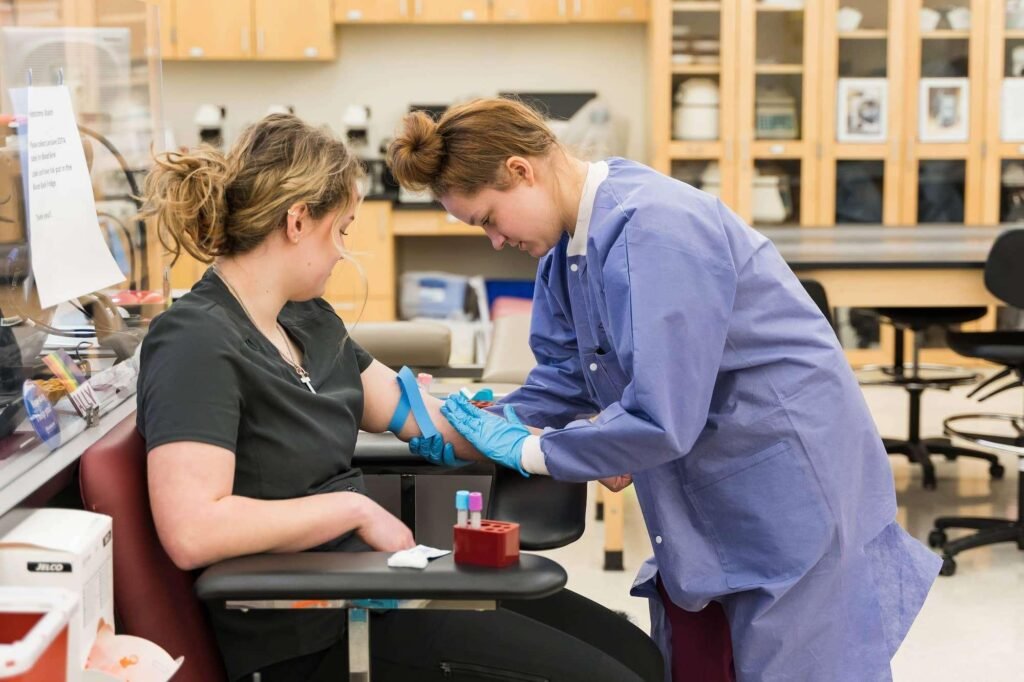Choosing the right phlebotomy programs can feel a bit like searching for a needle in a haystack. With so many options available, how do you determine which program will give you the skills and knowledge you need to succeed in this crucial healthcare role? Evaluating the quality of a phlebotomy program is essential for your future career, and in this article, we’ll walk you through the key factors to consider.
Understanding Phlebotomy
Before diving into the evaluation criteria, let’s clarify what phlebotomy entails. Phlebotomy is the practice of drawing blood from patients for various medical purposes, including diagnostic testing and transfusions. As a phlebotomist, you’ll work closely with patients and healthcare professionals, making it vital to receive proper training. The right program will not only teach you the technical skills but also help you develop the interpersonal skills necessary to work in healthcare.
Accreditation Matters
One of the first things to look for in a phlebotomy program is its accreditation status. Accredited programs meet specific standards set by recognized organizations, ensuring that they provide a high-quality education. Check if the program is accredited by agencies such as the National Accrediting Agency for Clinical Laboratory Sciences (NAACLS) or the American Society for Clinical Pathology (ASCP). Attending an accredited program can significantly enhance your employability and ensure that your training is recognized by employers.
Curriculum Review
When evaluating a phlebotomy program, take a close look at the curriculum. A well-rounded program should cover essential topics such as anatomy, physiology, medical terminology, and, of course, techniques for blood collection. It’s also beneficial if the program includes training in safety procedures and infection control practices. The more comprehensive the curriculum, the better prepared you’ll be for the demands of the job.
Hands-On Training Opportunities
Phlebotomy is a hands-on profession, so practical experience is crucial. A quality program should offer ample opportunities for you to practice your skills. Look for programs that provide clinical rotations or externships, allowing you to work in real healthcare settings under the supervision of experienced professionals. This hands-on training is invaluable, as it not only builds your confidence but also enhances your resume when you start applying for jobs.
Experienced Instructors
The expertise of the instructors can significantly impact your learning experience. Research the qualifications of the teaching staff in the program you’re considering. Are they certified phlebotomists with years of experience in the field? Do they have a background in education or training? Instructors who are passionate about their subject matter can inspire and motivate you, making your learning experience more engaging and effective.
Class Size and Student-to-Teacher Ratio
Another important factor to consider is the class size and student-to-teacher ratio. Smaller classes often lead to more personalized instruction, allowing you to receive more attention and feedback from your instructors. If possible, try to choose a program that offers a low student-to-teacher ratio. This setup can foster a more supportive learning environment and facilitate better interaction between students and instructors.
Flexibility and Schedule
As a prospective student, you might have other commitments, such as work or family. Therefore, it’s essential to consider the flexibility of the program’s schedule. Does the program offer evening or weekend classes? Are there options for online learning? A program that accommodates your needs can make it easier for you to balance your education with other responsibilities.
Job Placement Assistance
Completing a phlebotomy program is just the first step; finding a job afterward is crucial. Many programs offer job placement assistance, helping you connect with potential employers and prepare for job interviews. Inquire about the program’s job placement rates and what kind of support they provide to graduates. Programs with strong ties to healthcare facilities can be particularly beneficial, as they often have a network of employers looking for qualified phlebotomists.
Reviews and Testimonials
Finally, don’t forget to read reviews and testimonials from former students. Their experiences can provide valuable insights into the program’s quality and effectiveness. Look for feedback regarding the curriculum, instructors, hands-on training, and overall satisfaction. Social media and online forums can also be good places to gather opinions about different programs.
Making Your Decision
After considering all these factors, it’s time to weigh your options and make a decision. Think about what’s most important to you, whether it’s accreditation, hands-on training, or job placement assistance. Trust your instincts and choose a program that aligns with your career goals and personal circumstances.
Final Thoughts
Evaluating the quality of a phlebotomy program is an essential step toward a successful healthcare career. By focusing on accreditation, curriculum, hands-on training, experienced instructors, class size, flexibility, job placement assistance, and student feedback, you can make an informed choice. Investing time in this evaluation process will pay off as you embark on your journey to become a skilled phlebotomist.



More Stories
Dental Implant Pricing: Expert Guide & Insights
Your Path to Parenthood: Affordable & Transparent Surrogacy
Multivitamins for Women’s Stress Relief